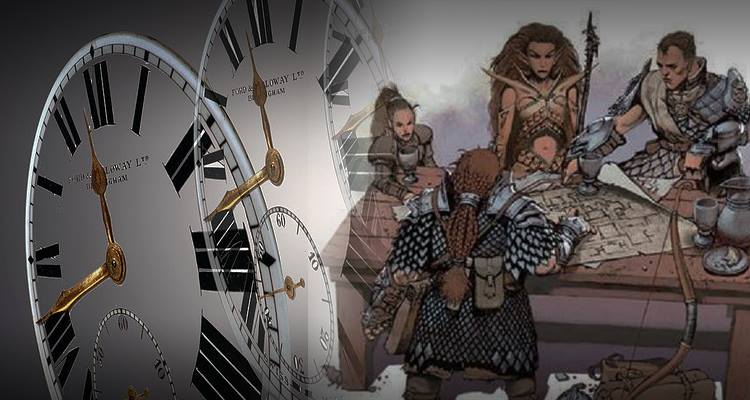In our combined 45 years of roleplaying here on Nerd Sourced, it’s hard to really know how many games we have started and stopped -sometimes even before the first session. This can be not only a huge morale-killer for your group, but can also potentially threaten future games from even starting. Here are some good ways to start a healthy campaign that will stay afloat in the long-run.
 When I first started playing Dungeons & Dragons I had no idea what to expect; but this was before the days of sitcoms having an obligatory D&D episode. My first campaign was silly, my character was absurd (he was a Dwarven fighter who wore scale mail and chain mail), and everything was just careless fun. That particular campaign lasted a good 4 or 5 years, but when we started new campaigns and new characters, things got more structured and we started actually reading the books instead of just looking at the pictures. Now, I’m lucky if I can get one of my players NOT to multiclass in more than three things. The more you play, the more you learn!
When I first started playing Dungeons & Dragons I had no idea what to expect; but this was before the days of sitcoms having an obligatory D&D episode. My first campaign was silly, my character was absurd (he was a Dwarven fighter who wore scale mail and chain mail), and everything was just careless fun. That particular campaign lasted a good 4 or 5 years, but when we started new campaigns and new characters, things got more structured and we started actually reading the books instead of just looking at the pictures. Now, I’m lucky if I can get one of my players NOT to multiclass in more than three things. The more you play, the more you learn!
Caring about what your players enjoy most is fundamental to making sure everyone is having a good time, and the best way to plan for an impactful moment is knowing what your players care about. To one player, the death of an NPC may be tragic; while another may love the feeling of acquiring a great piece of new gear. On page 6 of the 5th Edition Dungeon Master’s Guide you will find a section entitled “Know Your Players”. It’s a single page of player archetypes that can give you a good basis for assigning your players to a role, and a better understanding of how to engage them.
Feel free to ask players which aspects of RPGs they like most before you start planning. Or, even better, run a “one off” game to get a more detailed glimpse at what the players react to both positively and negatively.
I once ran a small game with just a couple friends between big D&D campaigns. This was back in the dark ages of 4th edition, and I remember one of my players thought he needed to overcompensate for the lack of players by making a very powerful combat character. I had no idea what kind of campaign I wanted to run, so I didn’t want to get in the way of his character creation process.
We started the first campaign and there wasn’t a single instance of combat – it focused instead on conspiracy and espionage. The players ran through gutters, made shady back-alley deals, and had to avoid the city guards at all costs.
On the car ride home, he told me how disappointed he was with his character -a feeling that can often lead to a player simply dropping out. He asked me if he could change his character fundamentally to fit the campaign more appropriately, and, of course, I said yes.
Much like a trailer for an upcoming movie, you need to showcase the mood and theme of your game in order to have everyone on the same page. Tell them what makes your game stand out from others. Does it take place in the last days of a doomed world? Is it a game of pirates on the high seas? We have many different ideas and cool themes here and here, but your own imagination is the limit!
It may seem like a “spoiler” when you reveal your plans to turn your upcoming campaign into an Undead Crusade, but it can be frustrating as a player to have built a cool character that just doesn’t fit into the theme of the game. Your goal is to manage your players’ expectations, hopefully, give them some ideas for their characters, and get them hyped and ready to play.
What tips do you have for making a campaign that’s guaranteed to last?


